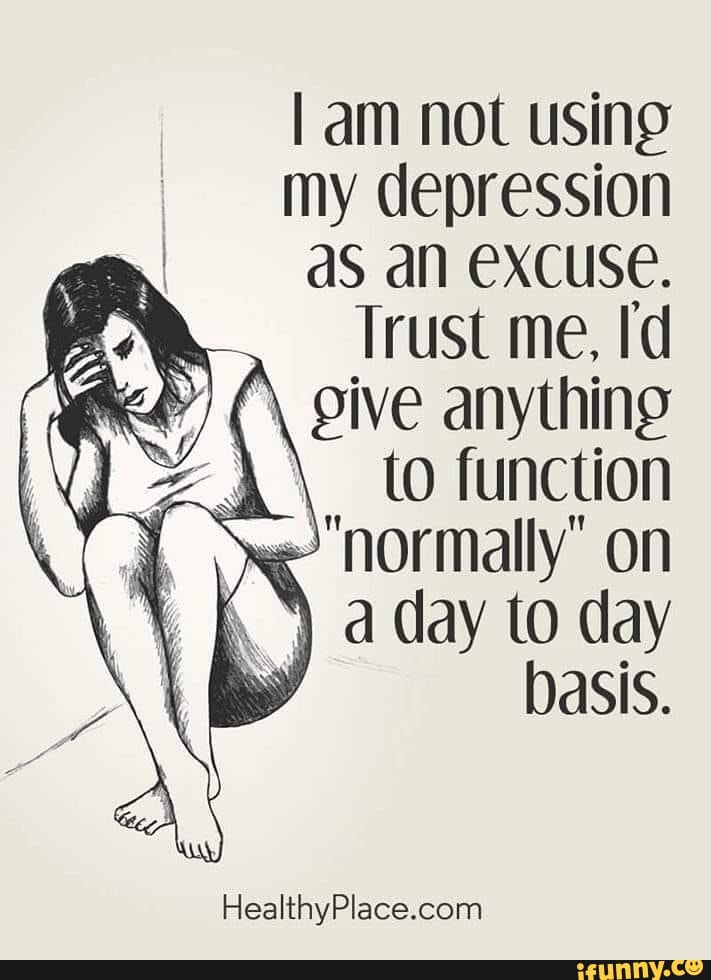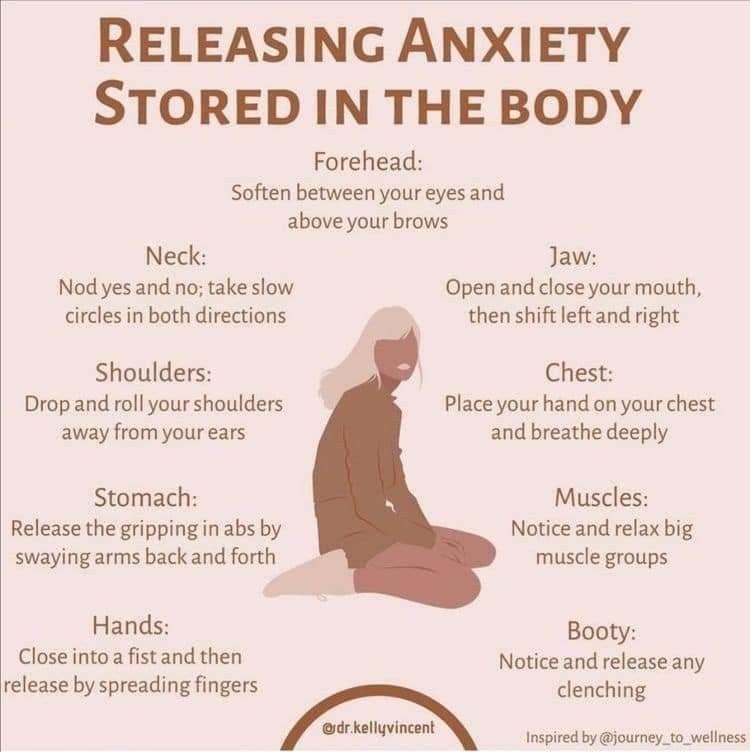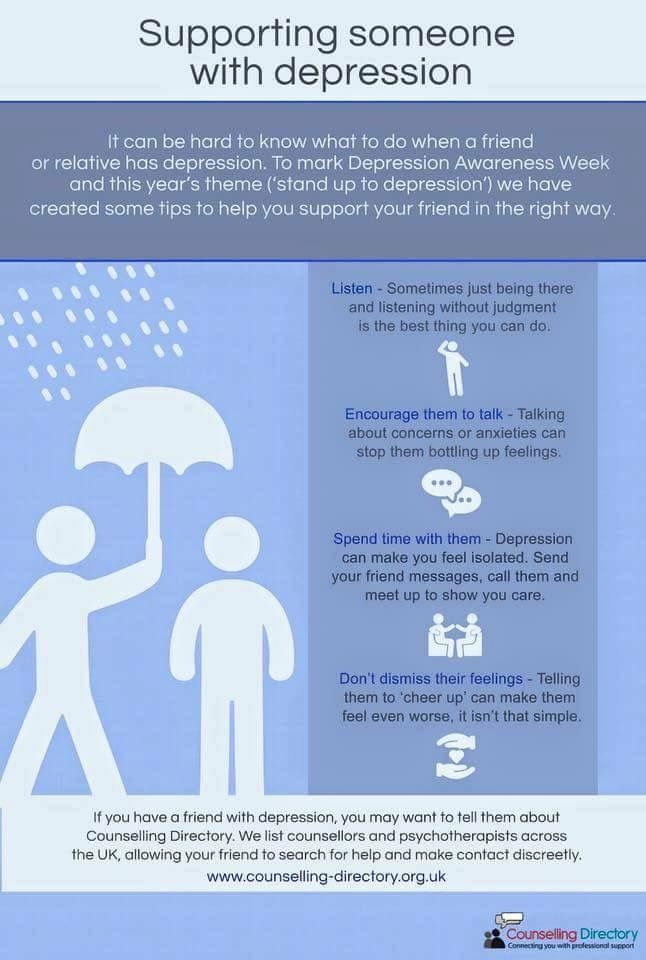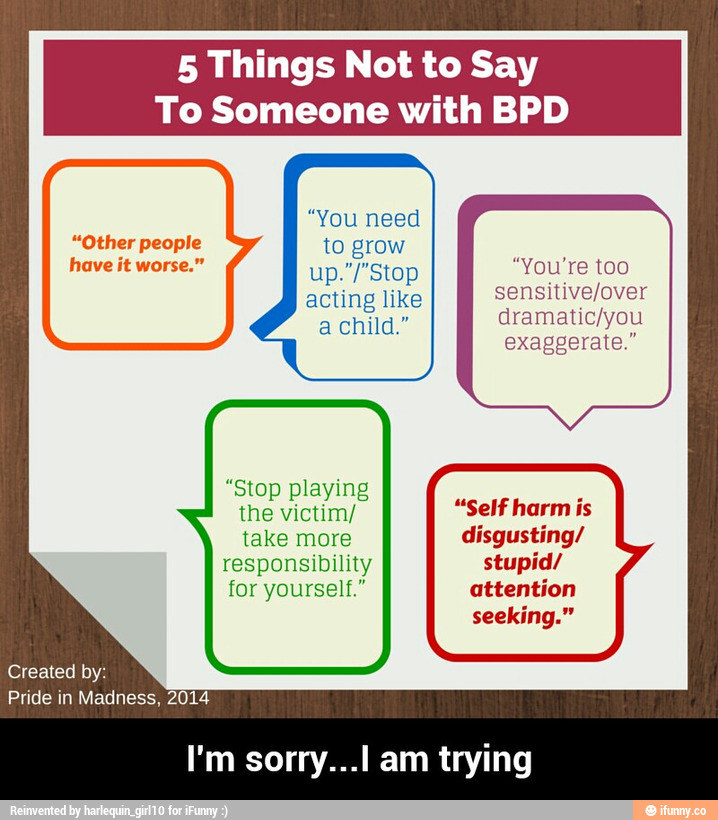Low self esteem and insecurity
Difference Between Low Self Esteem and Insecurity
December 17, 2019
by Hasa
4 min read
The main difference between low self esteem and insecurity is that low self esteem is the negative perception one has about oneself, whereas insecurity is a feeling of uncertainty or anxiety, and lack of confidence in oneself.
Low self esteem and insecurity are two negative feelings that make us feel bad about ourselves. Both these are characterized by a lack of confidence. Self esteem, in general, is how we perceive and value ourselves. Therefore, a person with low self esteem perceive himself as inferior and feels bad about himself. Moreover, low self-esteem has many associated characteristics like resentment, diffidence, envy, depression, and pessimism. Insecurity is one such characteristic of low self esteem.
Key Areas Covered
1. What is Low Self Esteem
– Definition, Characteristics, How to Overcome
2. What is Insecurity
– Definition, Characteristics
3. What is the Relationship Between Low Self Esteem and Insecurity
– Outline of Common Features
4. What is the Difference Between Low Self Esteem and Insecurity
– Comparison of Key Differences
Key Terms
Insecurity, Low Self Esteem, Self Esteem
What is Low Self Esteem
Self-esteem is how we perceive and value ourselves. It has a great impact on the choices we make in life since it can determine what we consider ourselves capable and worthy of doing. Therefore, a person with low self-esteem feels bad about himself or herself and lacks self-confidence. When a person doesn’t value himself, he may not put any effort into education or careers and may accept poor treatment from others around him.
Low self esteem may arise due to various causes, including genetic factors, physical appearance (body image), social-economic status, peer pressure, and bullying.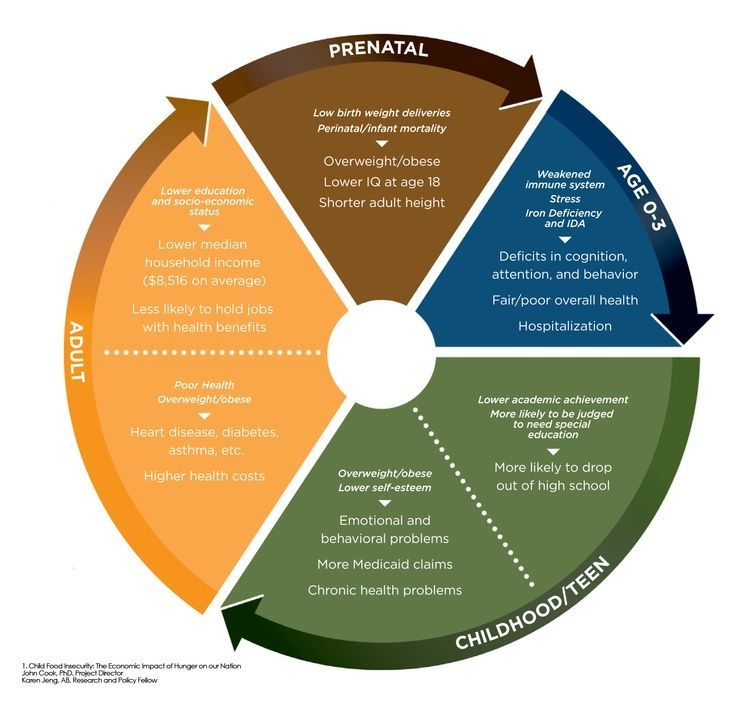 Furthermore, given below are some characteristics displayed by people with low self-esteem:
Furthermore, given below are some characteristics displayed by people with low self-esteem:
- Hypersensitivity to criticism
- Pessimism
- Envy
- Exaggerated fear of mistakes
- Excessive need to please others
- Depression
- Insecurity
- Angry/hostile
- Non-risk-taker
- Lacks self-confidence
In addition to these, an individual with low self-esteem tends to view temporary setbacks as permanent obstacles. Such individuals tend to be overly critical of themselves and even depend on the approval and praise of others.
How to Overcome Low Self Esteem
– Don’t pay too much attention to your critical inner voice – stop thinking negative thoughts about yourselves.
– Treat yourself with kindness and compassion
– You can also build your self-confidence
What is Insecurity
Insecurity is a feeling of uncertainty or anxiety about yourself. It stems from a lack of confidence and self-doubt.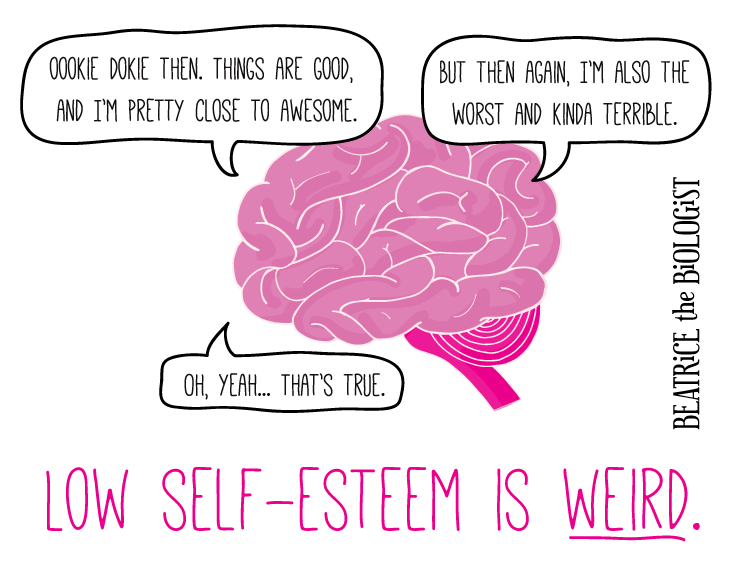 It can be caused by various factors such as past traumas, recent failures or rejections, social anxiety, and loneliness. Most of us feel insecure some times, but some of us feel insecure all the time. Moreover, a person with high levels of insecurity may lack confidence in himself or herself. It will also be difficult for that person to form long-lasting relationships or to attend daily task due to his deep-seated feeling of self-inadequacy or helplessness. Therefore, it is necessary to overcome insecurity.
It can be caused by various factors such as past traumas, recent failures or rejections, social anxiety, and loneliness. Most of us feel insecure some times, but some of us feel insecure all the time. Moreover, a person with high levels of insecurity may lack confidence in himself or herself. It will also be difficult for that person to form long-lasting relationships or to attend daily task due to his deep-seated feeling of self-inadequacy or helplessness. Therefore, it is necessary to overcome insecurity.
Furthermore, insecurity often factors in some mental health conditions and disorders like depression, anxiety, narcissism, eating disorders and body image issues.
Relationship Between Low Self Esteem and Insecurity
- Both low self-esteem and insecurity are characterized by a lack of confidence.
- Moreover, these negative feelings are associated with a myriad of mental health conditions and disorders.
- It is possible to overcome both by practising positive thoughts about oneself and building self-confidence.
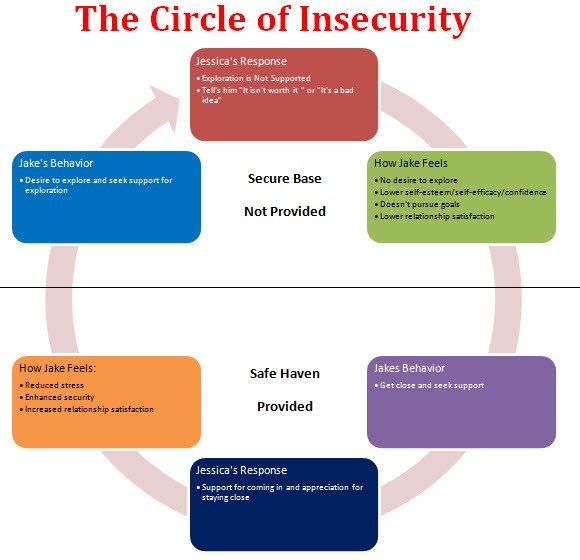
Difference Between Low Self Esteem and Insecurity
Definition
Low self esteem is the negative perception one has about oneself, whereas insecurity is a feeling of uncertainty or anxiety, and a lack of confidence in oneself.
Characteristics
Moreover, low self-esteem has many associated characteristics like resentment, diffidence, envy, depression, and pessimism; however, insecurity is one such characteristic of low self esteem.
Conclusion
Low self esteem and insecurity are basically two negative feelings that make us feel bad about ourselves. The main difference between low self esteem and insecurity is that low self esteem is the negative perception one has about oneself, whereas insecurity is a feeling of uncertainty or anxiety, and lack of confidence in oneself.
Reference:
1. “Insecurity.” GoodTherapy.org Therapy Blog, 5 Dec. 2019, Available here.
2. “Self-Esteem.” Wikipedia, Wikimedia Foundation, 17 Dec.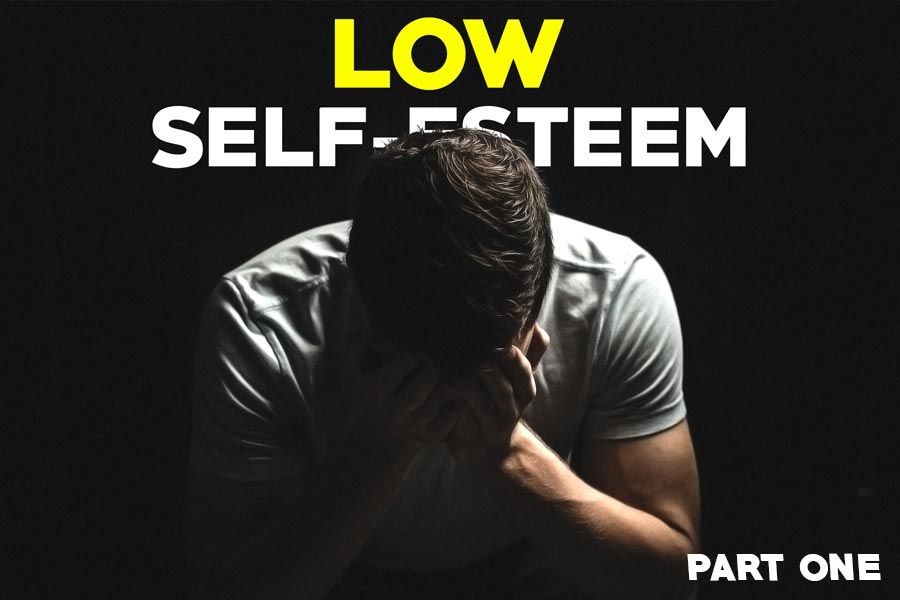 2019, Available here.
2019, Available here.
3. “8 Common Causes of Low Self-Esteem.” Good Choices Good Life, Available here.
Image Courtesy:
1. “Depressed (4649749639)” By Sander van der Wel from Netherlands – also, Depressed (CC BY-SA 2.0) via Commons Wikimedia
2. “705728” (CC0) via Pixabay
About the Author: Hasa
Hasa has a BA degree in English, French and Translation studies. She is currently reading for a Masters degree in English. Her areas of interests include literature, language, linguistics and also food.
View all posts
You May Also Like These
How to Stop Being Insecure and Build Self-Esteem
We include products we think are useful for our readers. If you buy through links on this page, we may earn a small commission. Here’s our process.
Healthline only shows you brands and products that we stand behind.
Our team thoroughly researches and evaluates the recommendations we make on our site.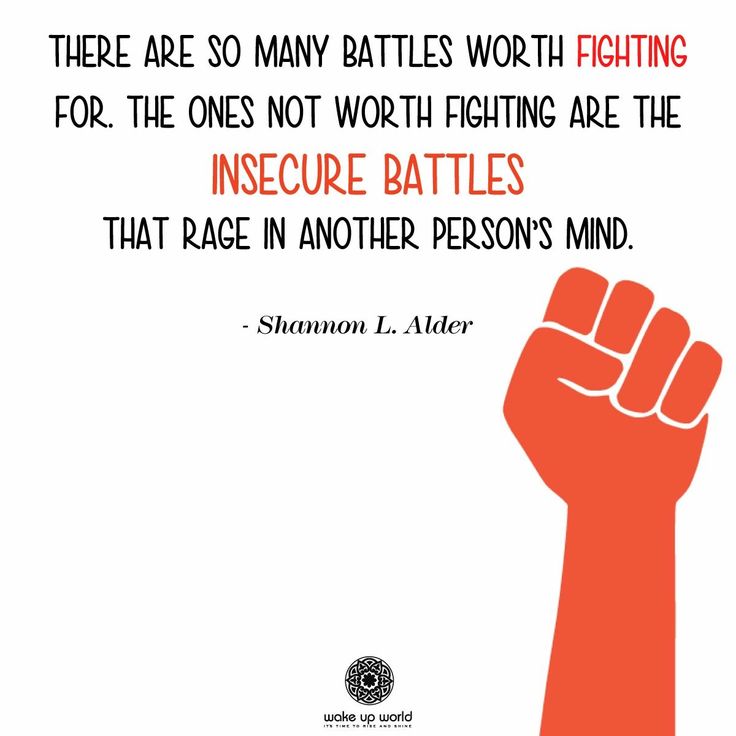 To establish that the product manufacturers addressed safety and efficacy standards, we:
To establish that the product manufacturers addressed safety and efficacy standards, we:
- Evaluate ingredients and composition: Do they have the potential to cause harm?
- Fact-check all health claims: Do they align with the current body of scientific evidence?
- Assess the brand: Does it operate with integrity and adhere to industry best practices?
We do the research so you can find trusted products for your health and wellness.
Read more about our vetting process.It’s normal to have down days where you feel you can’t seem to do anything right. But feeling insecure about yourself all the time can take a toll on every aspect of your life, from your physical health and emotional well-being to how you perform at your job.
Not feeling good enough can be especially hazardous when it comes to your romantic relationships by making your more prone to feelings of anxiety and jealous. And it doesn’t just affect you. Research shows that self-esteem impacts both you and your partner’s relationship satisfaction.
Research shows that self-esteem impacts both you and your partner’s relationship satisfaction.
The good news is there are ways to build up your self-esteem. While it won’t happen overnight, with the right strategies and mindset, you can take steps toward changing the way you feel about yourself.
Take inventory of everything you’re doing right. Chances are, your thoughts about yourself aren’t taking into account the hundreds of positive micro-decisions we make on a daily basis.
Remembering how you helped your neighbor with their groceries or assisted your boss during an important meeting, can help you focus on your contributions rather than shortcomings.
If you’re always looking after everyone else’s needs and forgetting your own, you’re not valuing yourself enough. Adding in more self-care to your daily routine can help you counter negative thoughts and build up your self-worth.
Here are some ways you can show yourself some love:
- Nurture your body by getting a massage or facial.
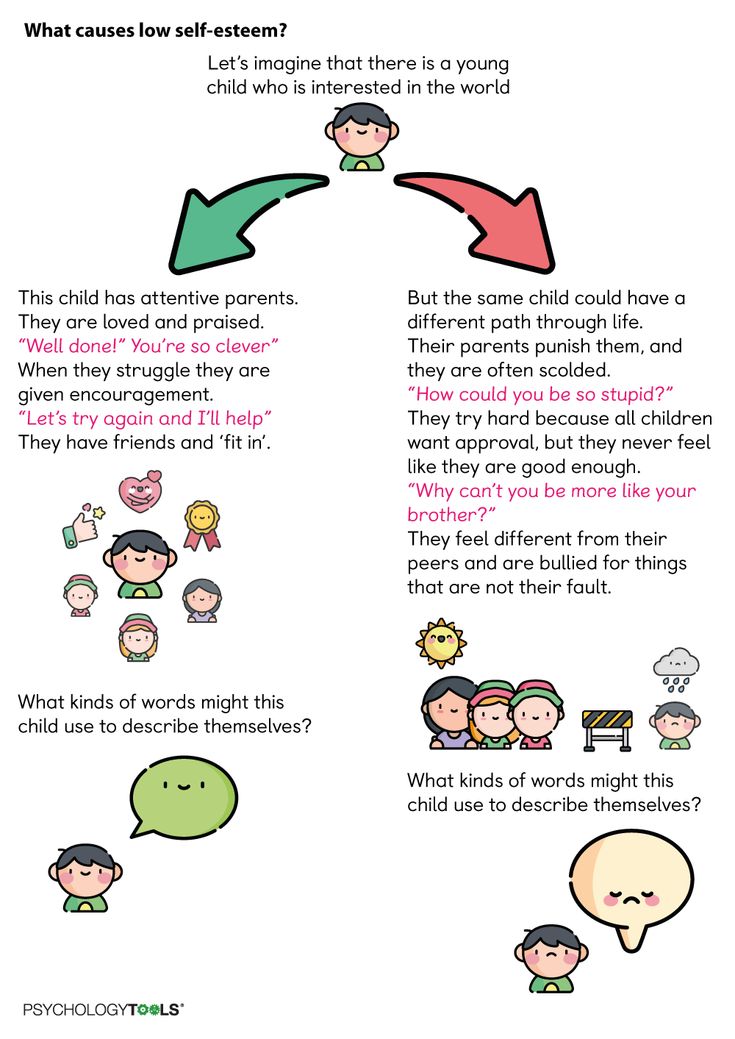
- Do your favorite workout at least 30 minutes each day.
- Unplug from your phone or take a social media detox.
- Treat yourself to a nourishing meal.
- Practice self-compassion; talk nicely to yourself.
Even just making sure you’re eating regularly and prioritizing sleep can give your self-worth a boost.
There are going to me moments when you fumble — it’s just part of life. But accepting this fact can help you feel more comfortable in your own skin.
The next time you find yourself feeling embarrassed or self-conscious, try to laugh it off.
Learn more about why awkwardness isn’t such a bad thing.
It’s easy to be hard on ourselves after stumbling or making a mistake. But beating yourself up because you didn’t score that big promotion or forgot to make an important phone call keeps you stuck in a negative cycle of shame and self-loathing.
Try to practice countering your negative thoughts as they come up:
- Forgive yourself and understand these are isolated instances that don’t define you as a person.

- Write down your negative thoughts so that you can step back and simply observe them.
- Consider what you’ve learned from the experience and re-focus on the positive. How has this taught you to create a better outcome in the future?
There’s nothing like surrounding yourself with loving, supportive people to build up your confidence and make you feel accepted for who you are.
Make a plan to set up more coffee dates and get-togethers with your nearest and dearest. Seeing yourself through the eyes of those who care about you will help you appreciate your own unique qualities and perspectives.
Think about the times you’ve felt especially insecure. Who were you with? What were you doing?
Noticing the people and situations that deflate your self-esteem can help you pinpoint what to avoid. If you’re surrounding yourself with so-called “friends” who make it a habit of pointing out your flaws, it’s a clear sign to find better company.
Celebrate your successes and talk yourself up when you’ve had a big win at work.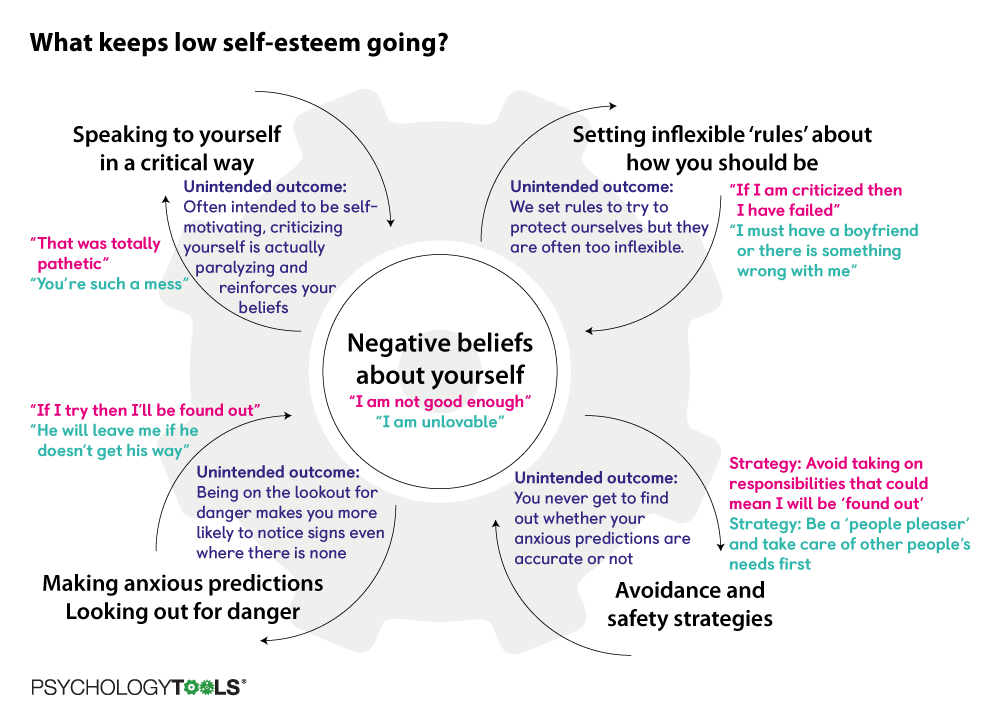 Being proud of what you do, even if it seems awkward at first, can have a powerful effect on your self-esteem.
Being proud of what you do, even if it seems awkward at first, can have a powerful effect on your self-esteem.
Keep a reminder on hand to help boost your confidence throughout the day by:
- saving compliments people have given you on your desktop or notes app
- writing out all of your accomplishments to review them when you’re feeling insecure
- taking a few minutes each day to list three things you appreciate about yourself
Prioritize spending free time doing things that bring you joy and happiness, whether it’s curling up with a book or cooking a good meal from scratch.
Even better, consider learning a new skill or taking up a hobby you’ve always wanted to try. Aside from making you happy, mastering a new skill is a good reminder of your talents and interests.
Overcoming insecurity and building up your self-esteem don’t happen overnight. Try to be kind to yourself during this process and don’t get discouraged if things aren’t improving as fast as you’d like them too.
Even if you don’t feel confident today, the small baby steps you are taking now will eventually grow into bigger steps and keep you moving forward.
Speaking with a qualified therapist can help you explore your fears and insecurities by understanding where they come from. They can also help you develop new tools for navigating situations that zap your confidence.
Not sure where to start? Our guide to affordable therapy can help.
Books about the nature of insecurity and ways to work through it can not only offer good advice, but also help you feel less alone in what you’re going through.
There are countless books the subject, but these titles are a good starting point.
What to Say When You Talk to Your Self
Through his profound technique, Shad Helmstetter, PhD, teaches you how to let go of nagging, counterproductive self-talk in favor of embracing a more positive outlook on life.
Purchase online.
What’s Right with Me
This book on celebrating your strengths and qualities will help you gain new perspective about your positive traits.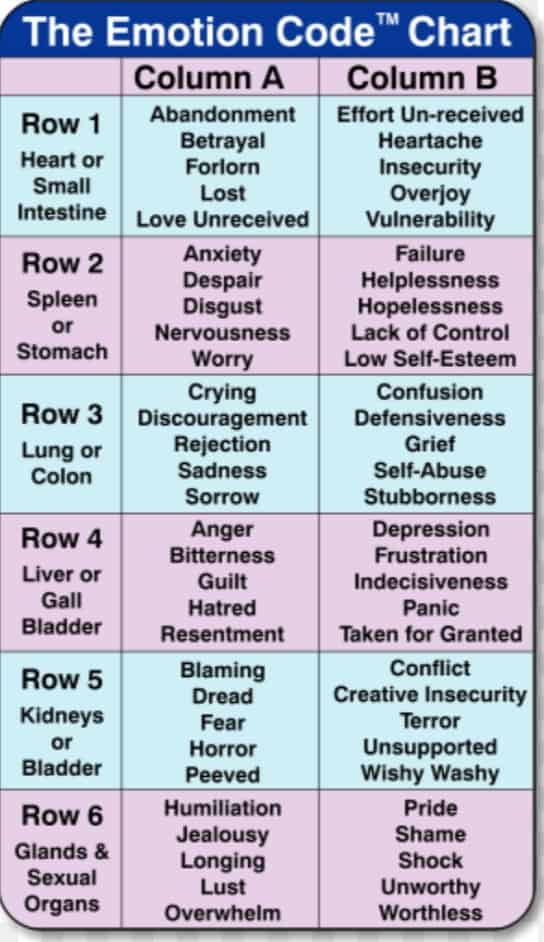 Carlene DeRoo, PhD, also offers engaging activities to help you identify what’s going right in your life.
Carlene DeRoo, PhD, also offers engaging activities to help you identify what’s going right in your life.
Purchase online.
Self-Compassion: The Proven Power of Being Kind to Yourself
If you’re struggling to recognize your value and worth, Kristen Neff, PhD, provides a road map for being gentle with yourself. Her book includes exercises and action plans for dealing with all kinds of emotional obstacles.
Purchase online.
Healing Your Emotional Self
This book by Beverly Engel is a particularly useful read if you think your self-esteem issues may be rooted in childhood experiences. She documents the many types of psychological abuses children experience while growing up and offers a powerful guide for overcoming low self-esteem.
By recognizing defense mechanisms carried from childhood, you can learn from your past to create a more positive self-image.
Purchase online.
Everyone deals with insecurity on some level, but left unchecked, it can have a big impact on your day-to-day life.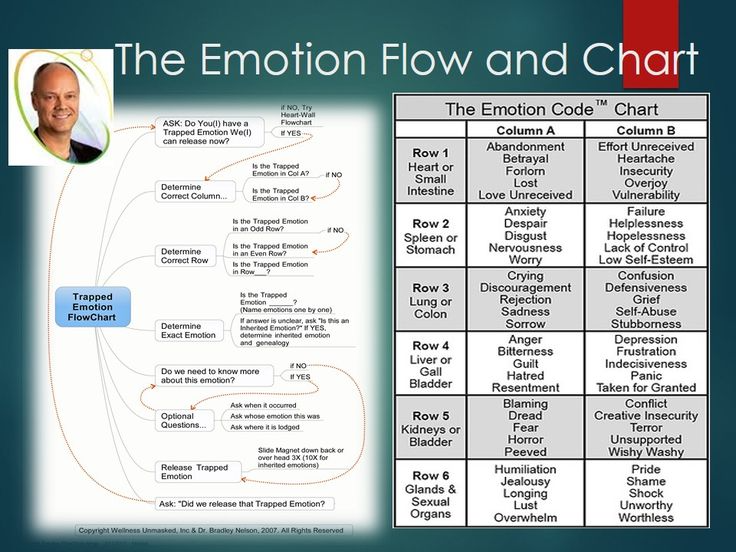 Building self-esteem isn’t always easy, and it can take some time, but the end result is worth it. Don’t hesitate to reach out for help if you feel like you could use some extra support.
Building self-esteem isn’t always easy, and it can take some time, but the end result is worth it. Don’t hesitate to reach out for help if you feel like you could use some extra support.
Cindy Lamothe is a freelance journalist based in Guatemala. She writes often about the intersections between health, wellness, and the science of human behavior. She’s written for The Atlantic, New York Magazine, Teen Vogue, Quartz, The Washington Post, and many more. Find her at cindylamothe.com.
Getting rid of self-doubt, help in overcoming low self-esteem and indecision in Almaty - onclinic.kz
- What is low self-esteem
- Why self-doubt appears nine0004
- How does insecurity and low self-esteem manifest?
- Consequences of self-doubt nine0004
- How to overcome self-doubt
- How can a psychologist help with self-doubt? nine0004
What is low self-esteem
Low self-esteem is an inadequate perception of oneself as a person, an underestimation of one's own capabilities.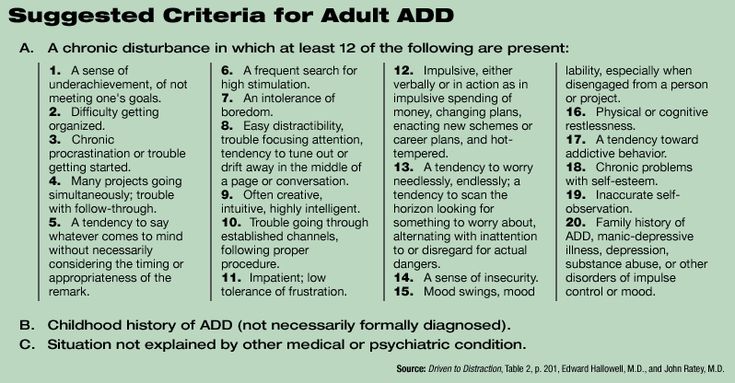 It occurs in men and women, adolescents and children. People suffering from this problem are indecisive, unsure of themselves and often feel embarrassed in front of others. In the future, an inferiority complex develops, which can seriously affect the future life. nine0017
It occurs in men and women, adolescents and children. People suffering from this problem are indecisive, unsure of themselves and often feel embarrassed in front of others. In the future, an inferiority complex develops, which can seriously affect the future life. nine0017
Psychologists distinguish several components of uncertainty:
- emotional - a person often experiences a feeling of fear, feels anxiety, and excessive irritability, is nervous;
- cognitive - a person is constantly in anticipation of any negative circumstances and an inadequate attitude towards his person;
- behavioral - a person lacks the necessary skills when communicating with other people;
- interpersonal - difficulties in forming contacts with other people
Why self-doubt appears
There are many reasons for low self-esteem. If a person carried out his life activity on a desert island or in another area isolated from others, there would be no worries about opinions from the outside, relationships, success and actions.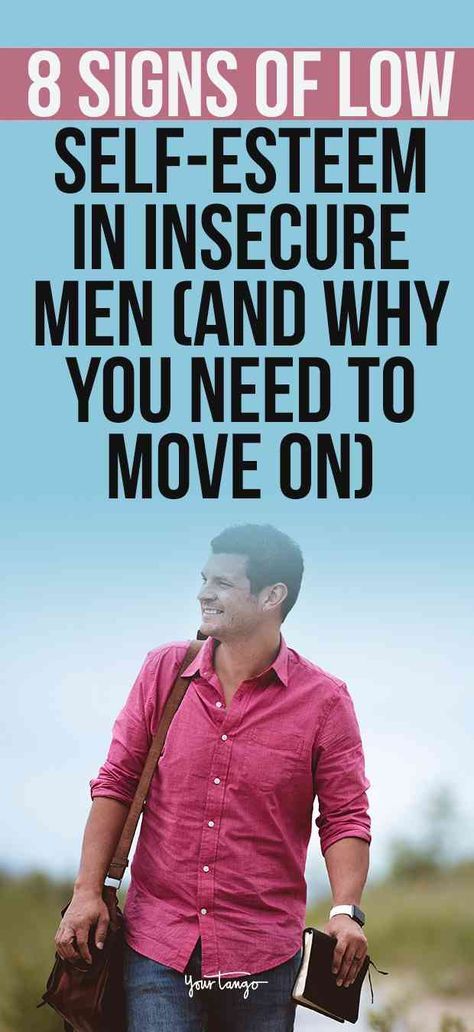 Uncertainty and low self-esteem is one of the most common social problems. It makes itself felt against the backdrop of human fear and complexes. These factors hinder the adoption of vital decisions. As a result, a person is faced with indecision and cannot realize his potential. This circumstance is influenced by several factors:0017
Uncertainty and low self-esteem is one of the most common social problems. It makes itself felt against the backdrop of human fear and complexes. These factors hinder the adoption of vital decisions. As a result, a person is faced with indecision and cannot realize his potential. This circumstance is influenced by several factors:0017
- hereditary predisposition - personality characteristics vary depending on the pace of development in childhood, bodily features (well-fed physique, big ears), which cause ridicule of outsiders and self-doubt;
- features of education - some parents force their daughters and sons to be subjected to excessive control, children experience constant criticism;
- culture and external environment - not every person has the opportunity to meet the required level regarding external data, success and intellectual indicators; nine0004
- ignorance of one's "I" - a person does not find close contact with his inner voice, cannot hear it, does not accept his own role in society;
- bad experience - if one day it was not possible to overcome any difficulties, and damage was done to the subconscious, self-confidence disappears;
- strong impact on the psyche of the media, suppression of the activity of the individual by negative news;
- unstable economic situation of some states; nine0004
- "A student's syndrome" - excessive expectation from the people around also contributes to the subject's inaction.
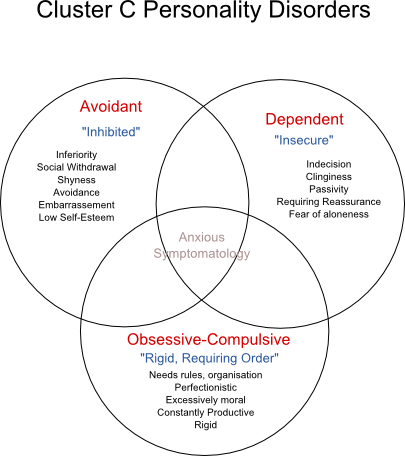
How insecurity and low self-esteem manifest
Obvious signs of indecision and insecurity are visible to almost every person around. Special psychological tests are used to determine the degree of confidence. Insecure people are often recognized by specific signs in their behavior. Such people show indecision, fear of taking any action, inaction even if they want to achieve their goals. According to people, an unsuccessful attempt will lead to defeat and ridicule from others. Such lack of initiative is argued by laziness and lack of desire. nine0017
Complexity and uncertainty are also expressed by other signs.
- With low self-esteem, unreasonable fuss arises, fear of missing your chance. Even with a sense of calm, which is often accompanied by laziness, the person is in a state of internal discomfort. Decision making takes place against the backdrop of anxiety and fear.
- A person has a clearly expressed desire not to separate from others, not to have the status of a “white crow” among everyone.
 That is why a person prefers not to move forward, so as not to attract attention to himself. nine0004
That is why a person prefers not to move forward, so as not to attract attention to himself. nine0004 - In case of self-doubt, a person is attacked by a feeling of resentment and envy in relation to people who are more successful in his opinion. As a result, the success of other people is not at all happy, since the offended person believes that there is no justice in life.
- An insecure person develops a feeling of guilt, embarrassment in public places and complexes. Against this background, their own thoughts and goals fade into the background.
- Often, low self-esteem is manifested by false stories about one's own merits and success. nine0004
- In most cases, people with low self-esteem do not have close friends, since he does not let anyone near him. Instead of strong friendships, a person prefers to express excessive demands, criticism and even aggression.
In addition to indecision and low self-esteem, there are other manifestations of this disease.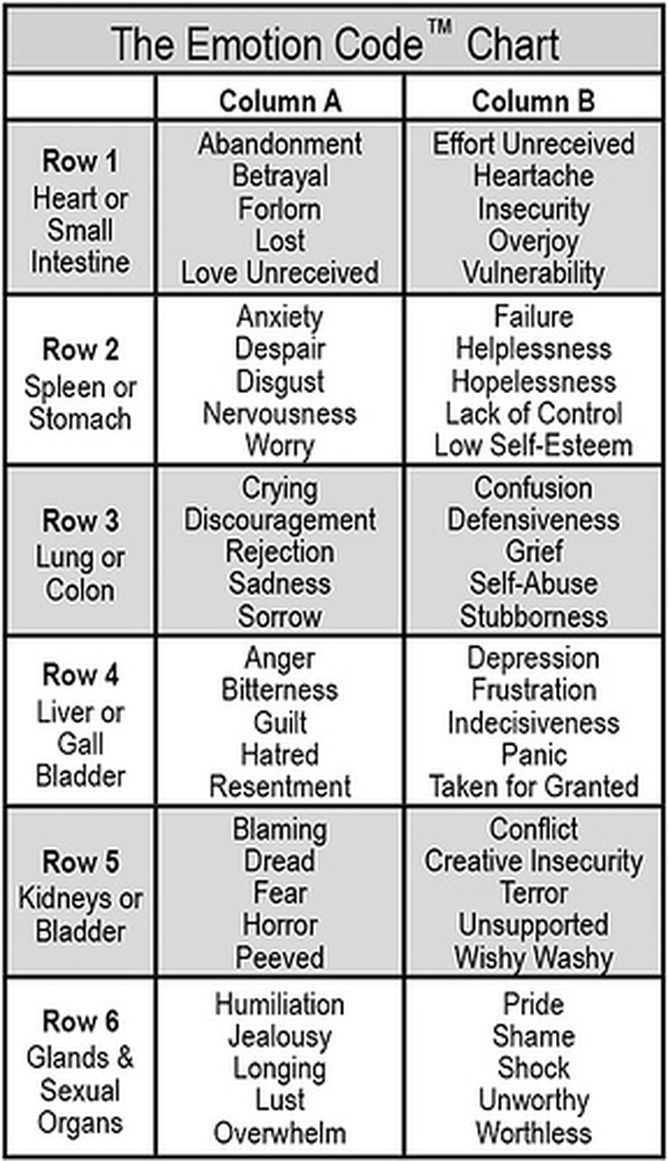 Individuals who underestimate themselves often experience depression. At the same time, many patients argue that depressive disorder is a manifestation of promiscuity and a lack of desire to overcome difficulties. Quite often a person plunges into depression. It contributes to the aggravation of the situation with self-esteem. The result is a vicious circle. You can correct the situation, overcome depression and increase self-esteem only by believing in your own strength, so you need to learn to believe in yourself. nine0017
Individuals who underestimate themselves often experience depression. At the same time, many patients argue that depressive disorder is a manifestation of promiscuity and a lack of desire to overcome difficulties. Quite often a person plunges into depression. It contributes to the aggravation of the situation with self-esteem. The result is a vicious circle. You can correct the situation, overcome depression and increase self-esteem only by believing in your own strength, so you need to learn to believe in yourself. nine0017
Mental symptoms are far from the only manifestations of low self-esteem and indecision. Physical symptoms are often present along with them. Patients complain of sleep disturbance, decreased immunity, headaches. In the near future, problems arise at home and at work. The patient with a loss of self-confidence is unable to cope with the tasks.
The consequences of self-doubt
Indecisiveness and low self-esteem have a negative impact on the life of an individual.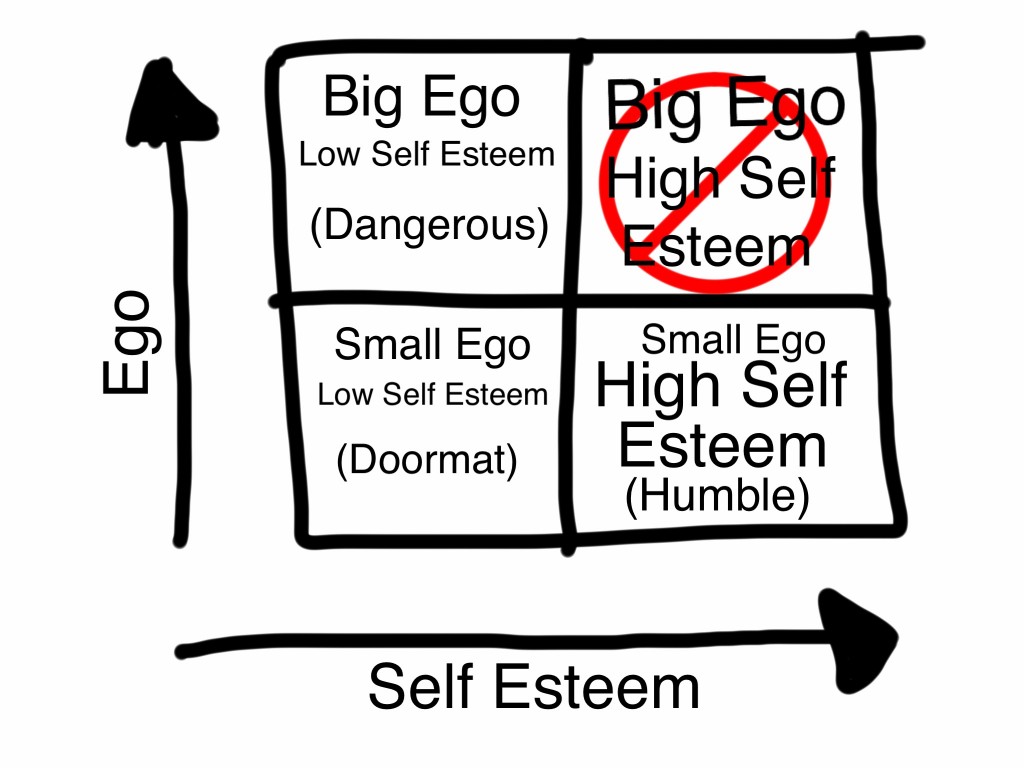 According to some experts in the field of psychology, the lack of faith in oneself is, first of all, disrespect for one's own person. It is much more difficult for an insecure person to find a common language with others, work in a team, build love relationships. nine0017
According to some experts in the field of psychology, the lack of faith in oneself is, first of all, disrespect for one's own person. It is much more difficult for an insecure person to find a common language with others, work in a team, build love relationships. nine0017
A person has problems in cases that are incomprehensible to him. He wants to clarify the situation and cope with difficulties, but this lacks confidence and strength. Often, men and women, because of their own fears, commit actions that are negative for society. They are manifested by bullying towards others, humiliation. From this, one's own life does not change for the better, and the people around experience negative emotions.
Particular attention should be paid to the inferiority complex in adolescence. It is during this period that the formation of personality takes place. In view of the transitional age, adolescents are vulnerable, aggressive. These qualities can seriously affect the psyche. The future life depends on what the self-esteem of a teenager will be. Therefore, in the presence of indecision, an inferiority complex, it is better to contact a psychologist. nine0017
Therefore, in the presence of indecision, an inferiority complex, it is better to contact a psychologist. nine0017
How to overcome self-doubt
To overcome fear and indecision, you can use the following recommendations.
- Reward yourself even for small successes. Write down your achievements and appreciate that there are a lot of them. This will help overcome indecision and increase self-esteem.
- Don't be afraid to say the word "no" to the people around you. In addition to other people's interests of other subjects, consider personal desires.
- Do not punish severely and do not humiliate yourself for any failures and discrepancy between the expected result. Listen to the inner voice and be in close relationship with the inner world. nine0004
- Try to focus your attention on positive thoughts. Do not immerse yourself completely in problems, as this entails rapid overwork and a loss of self-confidence.
How can a psychologist help with self-doubt
Are you afraid that low self-esteem will be a constant companion? You have a chance to prevent this. A qualified psychotherapist conducts an appointment at the On Clinic Medical Center in Almaty. He will assist in the correction of low self-esteem, relieve indecision and help gain confidence in one's own strengths. The specialist will help the patient to realize personal advantages and disadvantages, to notice his strengths. The program to combat low self-esteem for each patient is compiled individually. nine0017
A qualified psychotherapist conducts an appointment at the On Clinic Medical Center in Almaty. He will assist in the correction of low self-esteem, relieve indecision and help gain confidence in one's own strengths. The specialist will help the patient to realize personal advantages and disadvantages, to notice his strengths. The program to combat low self-esteem for each patient is compiled individually. nine0017
Psychologists and psychotherapists use several methods to deal with determination and self-doubt.
- meditation is an effective way to achieve special mental sensations;
- self-regulation - an effective means of emergency psychological assistance, leads to psychosomatic healing;
- cognitive-behavioral therapy - based on the "modeling" of behavior;
- relaxation - due to relaxation, mental and physical symptoms are combated; nine0004
- hypnosis - based on immersing the patient in a state similar to sleep, in which relaxation occurs;
- psychological training - the patient receives behavioral skills and personality development.
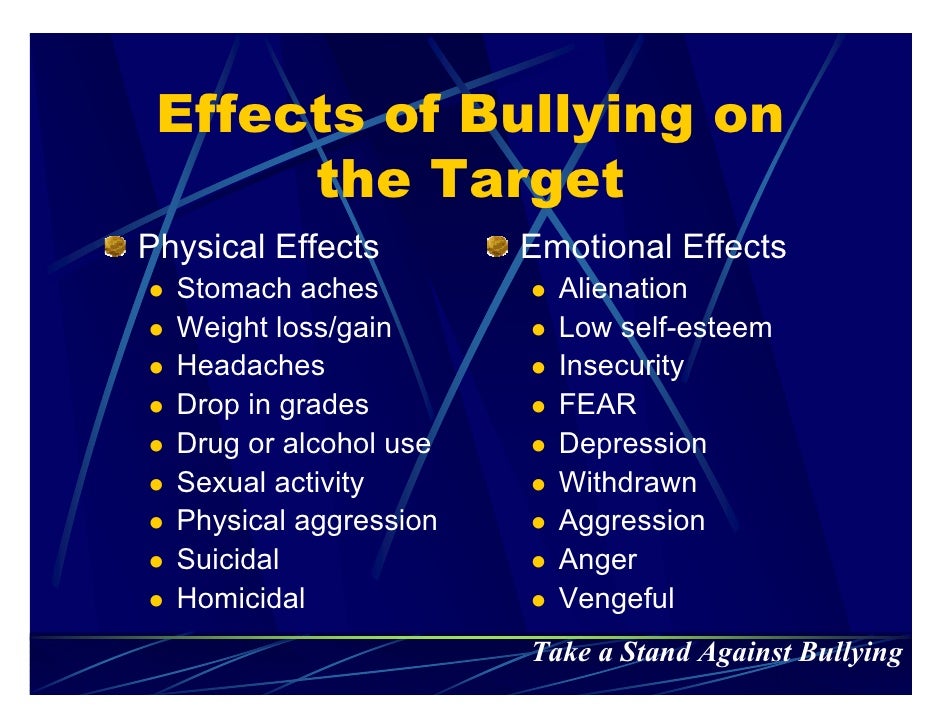
In addition to the above methods, specialists use auxiliary methods that are aimed at bringing the psychological state back to normal, fighting self-doubt and self-development.
For depression, anxiety or sleep disturbance, when psychotherapeutic methods do not improve the condition, the patient is prescribed sedatives. These drugs have a mild sedative effect and consist mainly of herbal ingredients. nine0017
Patients with low self-esteem are far from few. In some cases, getting rid of this deficiency requires not only the desire of the patient, but time, as well as great efforts by the psychologist. No need to dwell on problems and be afraid to change something if there is an opportunity to overcome indecision.
Online application
Fill out the form and we will find a convenient time and conditions for you!
Thank you for your application! Our medical consultant will contact you at soon. nine0017
Not sure where to start?
We will suggest which specialist you need to contact based on your symptoms.
Low self-esteem - Psychologos
October 01, 2022, 9:38 PM
Movie "Cloudy with a Chance of Meatballs"
Low personal self-esteem - a person's low internal assessment of his qualities, capabilities and merits. First of all, this is what a person thinks about himself, and secondly, how he behaves and what he decides to do. nine0017
There may be variants with external behavior: sometimes a person behaves excessively self-confident just because of his own internal insecurity.
Low self-esteem can be stable, sometimes floating - depending on the situation or mood.
Small children are often cowardly when they are alone, and act quite confidently and boldly when their mother is nearby. Mom will help!
Before the exam, the girls begin to tremble and lower their self-esteem: "I don't know anything at all!" nine0017
What is behind low self-esteem
A variety of things can be behind low self-esteem. Behind low self-esteem, there may be an adequate assessment of one's small capabilities, or perhaps fear and self-doubt. However, more often behind low self-esteem is something else entirely, "supposedly low self-esteem." More often it is a game, declaration, demonstration, window dressing, with the aim of abdicating responsibility, doing nothing, not making any effort. Sometimes it is a conscious game, sometimes it is an unconscious psychological defense, sometimes it is a philosophy of life. See → nine0017
Behind low self-esteem, there may be an adequate assessment of one's small capabilities, or perhaps fear and self-doubt. However, more often behind low self-esteem is something else entirely, "supposedly low self-esteem." More often it is a game, declaration, demonstration, window dressing, with the aim of abdicating responsibility, doing nothing, not making any effort. Sometimes it is a conscious game, sometimes it is an unconscious psychological defense, sometimes it is a philosophy of life. See → nine0017
People with low personal self-esteem in human life
An adult with low personal self-esteem tends to be less successful. Low personal self-esteem is closely related to feelings of guilt, shame, fear, and sometimes hostility to the outside world. It is connected - that is, it is generated by this, and generates this, and is expressed in this. People with low personal self-esteem are usually not respected, they are difficult to admire, they are rarely liked - but they like to use them. Girls often choose not the brightest and not the most self-confident as their friends in order to look more interesting against their background. nine0017
How to Protect Your Self-Esteem
Professor William Swann of the University of Texas advises: Treasure your association with those who like and like you, who are ready to stimulate the growth of your self-esteem. And try to minimize communication with those who, with their hostility, threaten to shake your self-esteem. It is impossible to please everyone, to please everyone, but in most cases it is in our power to choose with whom to deal and whose judgments to listen to.
How to improve low self-esteem
A series of severe failures often gives rise to situational low self-esteem. However, the support of loved ones and significant others in such cases can be very effective.
If low self-esteem is not situational, but stable (personal), then in any case it cannot be quickly improved or corrected.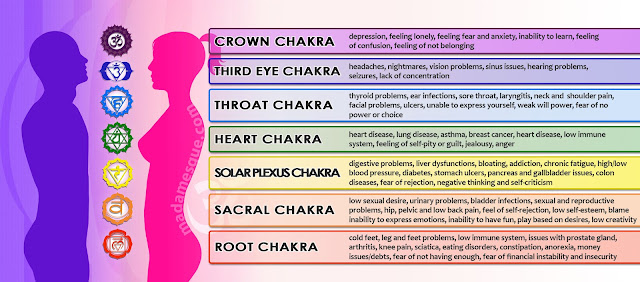 That is, it is possible to increase it for a short time, but it is possible to increase it steadily, but not quickly. At the very least, it's a job for a few months. High-quality self-confidence training and positive psychotherapy can help. nine0017
That is, it is possible to increase it for a short time, but it is possible to increase it steadily, but not quickly. At the very least, it's a job for a few months. High-quality self-confidence training and positive psychotherapy can help. nine0017
Situational low self-esteem is usually easy to improve: it is enough to distract from the negative situation being experienced, to involve in a new business or another situation where success is quite possible. and just to give a soft or hard form of support.
In any case, check out the articles Confidence, Dealing with Uncertainty and Confidence Starts with You
- Low self-esteem
Comments (7):
Guest, January 16, 2015 1:00 pm
Didn't like the article.
1
reply
Guest 2, March 13, 2015 at 00:32
What specifically didn't you like?
1
reply
Guest, 08 January 2018 at 06:14
And I really liked it. Everything is constructive. Thank you
Everything is constructive. Thank you
Alexander Migoryan, March 13, 2015, 2:52 pm
Positive thinking and a positive attitude can be the factor that will budge low self-esteem. However, in order for a positive attitude to appear, it is often necessary to change the way of life or, as a rule, change the situation for a while. nine0017
Guest, October 25, 2017 3:40 PM
Even people who have low self-esteem can become successful. I know those.
1
reply
Guest, February 15, 2022, 4:29 PM
Honestly, it's hard to believe in this, I would say, before the 1st year in college. I noticed that almost all nerds (whether girls/boys) have low self-esteem.
Guest, June 28, 2018, 09:53 AM
I liked it, everything is clear, short, accessible.
Related materials:
May 07, 2018
How to go from anxious with low self-esteem to confident
A person needs to change their old thought chain to a new one.
15Read more
01 Dec. 2018
How to improve low self-esteem
Friends, when I hear complaints about low self-esteem, I have a question: how do people understand that the problem is self-esteem? Well, you told yourself what you are ... And where did the idea that you evaluated yourself inadequately come from? nine0017
0Read more
Oct 01 2022
Adequate self-esteem
Self-esteem may or may not be adequate. Appropriateness is conformity to the requirements of the situation and the expectations of people. If people believe that a person can cope with the tasks, but he does not believe in himself, it is said about low self-esteem. If a person declares unrealistic plans, they talk about his overestimated self-esteem. The most important criterion for the adequacy of self-esteem is the feasibility of a person's plans.
1Read more
01 Oct.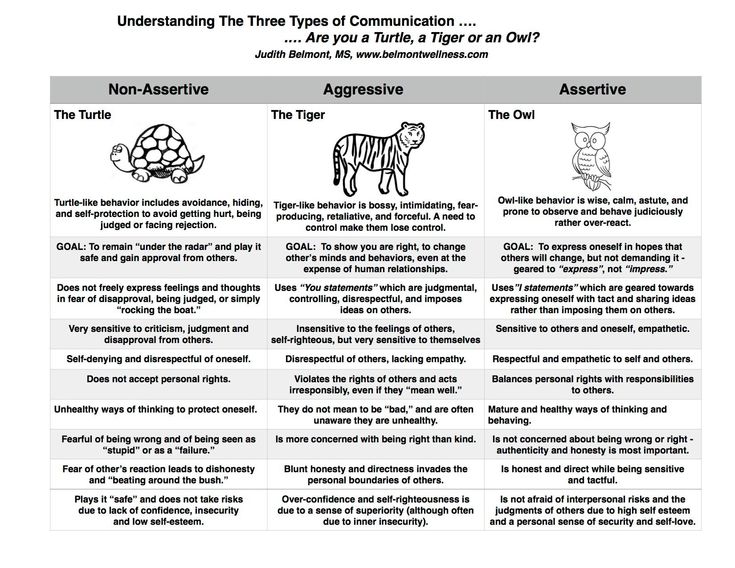 2022
2022
Adequacy of specific-situational self-assessment
The level relative to which the “adequacy” or not of specific-situational self-assessment is determined is determined either at the level of common sense or according to developed criteria. If the subject chooses life or educational tasks of a low level of complexity, although the test results are high, his self-esteem is underestimated. He takes on tasks that he cannot cope with - overpriced. Quite accurately determines the level of complexity of tasks that can be handled - adequate self-esteem. nine0017
0Read more
31 Dec. 2005
Inferiority complex
Inferiority complex - strong self-doubt, low self-esteem, a stable feeling of complete worthlessness, helplessness, superiority of all over oneself. The concept was introduced by the German psychoanalyst Alfred Adler. Symptoms of an inferiority complex are usually constant attempts to draw attention to one's suffering, flaunting the role of Martyr and Victim, lack of contacts, fear of people, fear of making a mistake, constant tension, sometimes speech defects. nine0017
nine0017
1Read more
Jan 01 2013
Personal self-esteem
Personal self-esteem is how a person as a whole evaluates himself and his place among others: what is my status and what is my competence in life as a guarantee of sufficient status. Personal self-esteem - self-esteem of a person as a whole, in contrast to specific situational self-esteem, which can be many different, in relation to different situations.
1Read more
04 Jun. 2014
Feelings about their appearance
There are two categories of people who are characterized by traditional concerns about their appearance, these are women and adolescents. Accordingly, it is most difficult for teenage girls. They sincerely believe that they are simply ugly, and are ready to go to the mirror 50 times a day to make sure of this. And what to do with it? Just trying to convince them is pretty useless. And they will not listen, and even if they listen, they will remain with their opinion. However, there is a good experience of one of the parents (remote student), with which we want to introduce you. nine0017
However, there is a good experience of one of the parents (remote student), with which we want to introduce you. nine0017
7Read more
01 Oct. 2022
Level of self-esteem
Level of self-esteem - self-esteem can be high, medium and low.
0Read more
Oct 01 2022
High self-esteem
When people talk about high self-esteem, they almost always mean high personal (rather than specific situational) self-esteem. In this understanding, high self-esteem is a high assessment by a person of his qualities, capabilities and merits, confidence that failures are more likely random and associated with an unfavorable combination of specific circumstances, only here and today, and success is natural and determined by a person’s own qualities, his ability to independently solve difficult problems. . nine0017
0Read more
Oct 01 2022
Allegedly low self-esteem
A variety of things can be behind low self-esteem.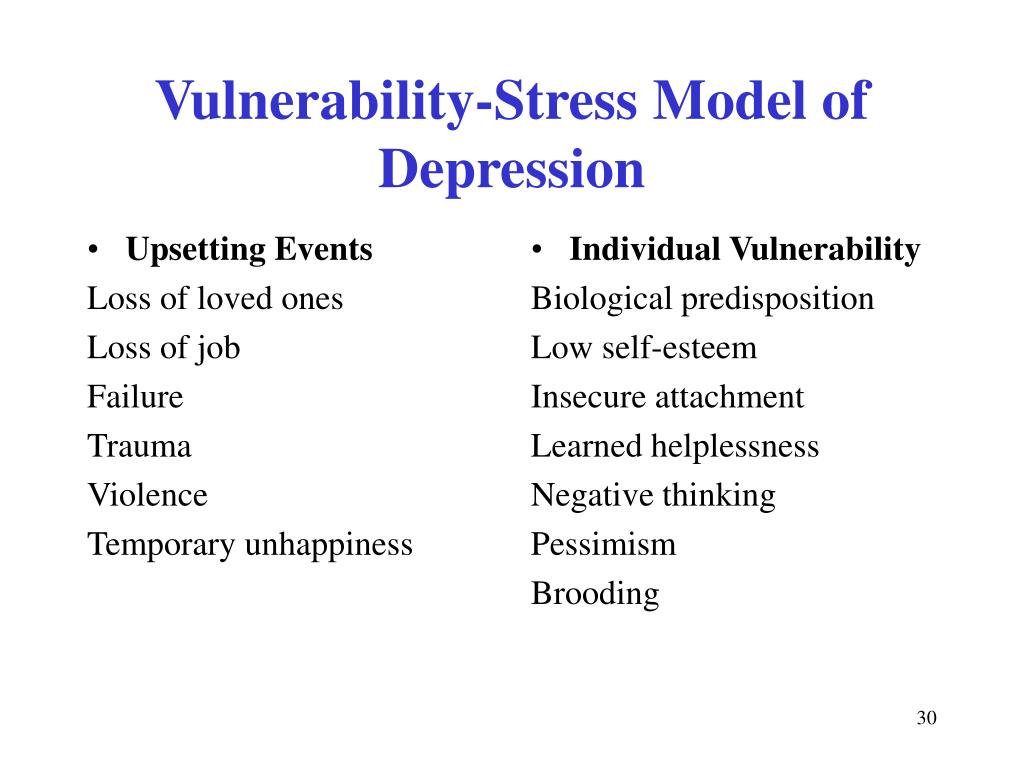 Behind low self-esteem, there may be an adequate assessment of one's small capabilities, or perhaps fear and self-doubt. However, more often behind low self-esteem is something else entirely, "supposedly low self-esteem." More often it is a game, declaration, demonstration, window dressing, with the aim of abdicating responsibility, doing nothing, not making any effort. Sometimes it is a conscious game, sometimes it is an unconscious psychological defense, sometimes it is a philosophy of life. nine0017
Behind low self-esteem, there may be an adequate assessment of one's small capabilities, or perhaps fear and self-doubt. However, more often behind low self-esteem is something else entirely, "supposedly low self-esteem." More often it is a game, declaration, demonstration, window dressing, with the aim of abdicating responsibility, doing nothing, not making any effort. Sometimes it is a conscious game, sometimes it is an unconscious psychological defense, sometimes it is a philosophy of life. nine0017
0Read more
Oct 01 2022
Low self-esteem
Low self-esteem - self-esteem, which, according to competent people, or according to an objective indicator, is lower than adequate. People with low self-esteem tend to feel bad about themselves, show indecision and cowardice. The reasons for low personal self-esteem are varied. More often than others, such reasons as negative suggestions from others, or negative self-hypnosis, are noted.
